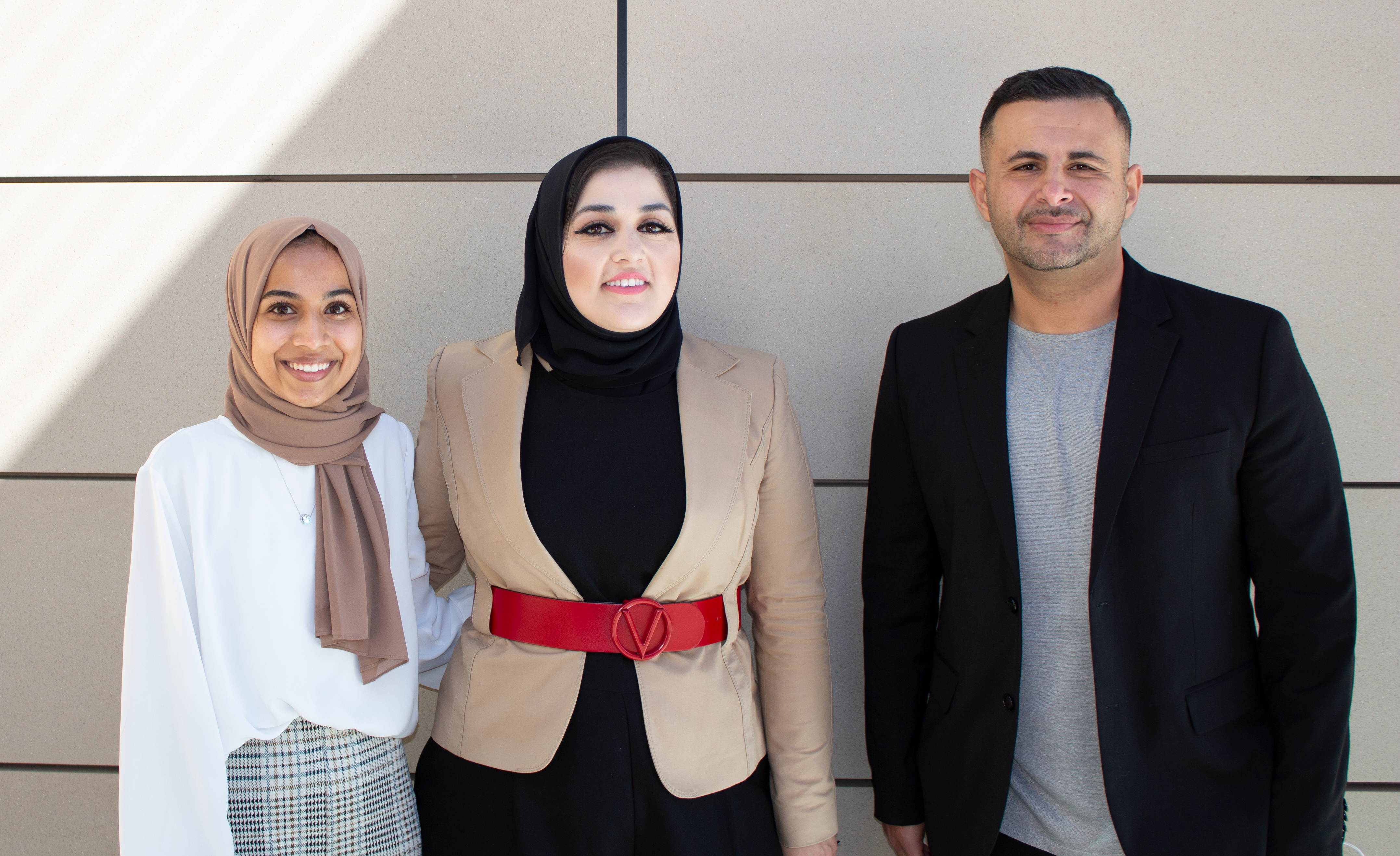The Robbins Collection and Research Center and the Henderson Center for Social Justice co-hosted “Gendered Islamophobia: Exploring and Uprooting an Imperial Narrative’’ organized by the Berkeley Law Muslim Student Association (BLMSA) on Tuesday, March 8, 2022. The symposium featured Professor Khaled Beydoun of Wayne State University Law School and Professor Nura Sediqe of Princeton University’s School of Public and International Affairs and was moderated by Iqra Razzaq, research assistant under Beydoun and Sediqe and the 1L representative for the BLMSA. Beydoun and Sediqe’s forthcoming article “Unveiling” was the basis for the discussion. The article will be published by the California Law Review in April 2023 and will describe a gendered view of Islamophobia. Beydoun and Sediqe then plan to pursue a second related project to delve into the global aspects of this concept.

Beydoun and Sediqe’s scholarly backgrounds inform their contributions to the project. Beydoun is a legal scholar and author of American Islamophobia: Understanding the Roots and Rise of Fear and co-editor of Islamophobia and the Law. Sediqe is a political scientist who studies how identity influences policy preferences and political behavior. As a part of her research she has conducted surveys on American views regarding Muslims.
What does gendered Islamophobia mean and how is it different from our notions of Islamophobia? Beydoun noted that a gendered view is at the very heart of Islamophobia. People see Muslim men and Muslim women very differently, to the extent that “There’s an impulse to want to save Muslim women and children, from their husbands and fathers” said Beydoun. Sediqe referred to a survey she conducted on the various ways identity influences people’s political behaviors. The survey, which asked about the views of 1230 Americans about Muslims, found that while the respondents had negative views of Muslims in general, they saw Muslim men and Muslim women differently. Respondents tended to view Muslim men as more violent than non-Muslim men, and Muslim women as most submissive. “These views have consequences in the legal field, and how policy is made,” Sediqe said.
As an example, she pointed to the 2009 case Webb v. City of Philadelphia. Webb, a practicing Muslim, was employed as a police officer with the Philadelphia Police Department for eight years before requesting permission to wear her hijab while on duty. The Phildadelphia Police Department denied her request, and Webb filed a complaint of religious discrimination. While the complaint was pending, Webb wore the hijab to work, and when she refused to remove it, was sent home, and disciplined for insubordination and was suspended. It was then that she brought suit against the City and Police Department. Her claims were eventually rejected by the U.S. Court of Appeals. Beydoun discussed the case of Noor Salman, the wife of the perpetrator of the Pulse nightclub shooting in Orlando in 2016. Salman was assumed to be just as responsible for the shooting as her husband, based on the discourse that she was his Muslim wife and therefore subordinate, Beydoun explained. She was charged with aiding her former husband and obstruction of justice. She was eventually acquitted, but perception of her guilt persists.
While gendered Islamophobia is increasingly influencing public policy and law, advocates are fighting back. “What role do we play? What can we do? How can we be allies in fighting gendered Islamophobia?” asked Razzaq. Sediqe suggested that advocates and advocacy organizations center the voices and perspectives of Muslim women, and to question assumptions we make about the community. “I went to law school when it was still pretty taboo to talk about Islamophobia in such a public way. It’s heartening to see more Muslim law students,” said Beydoun. “Everyone who cares about racial justice and social justice at least know what’s going on, and Muslim advocates and non-Muslim allies have been championing the case in recent years.”